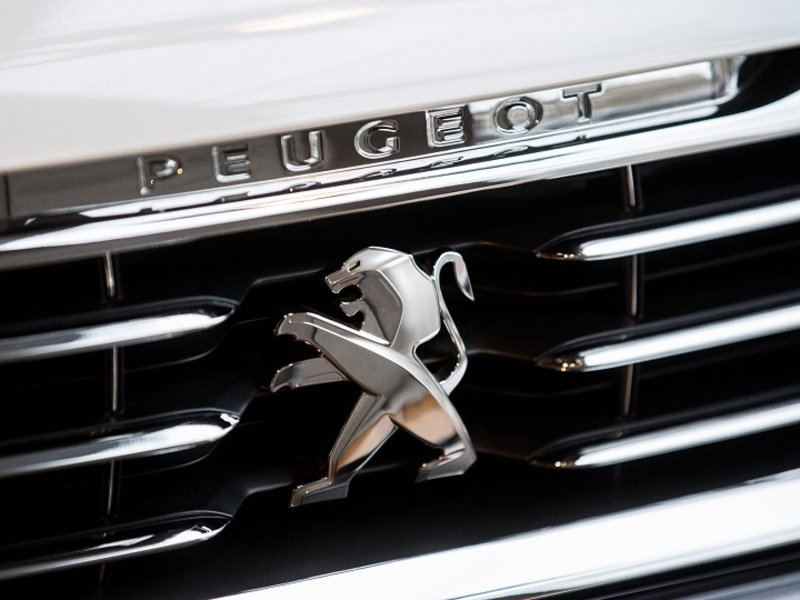
PARIS — PSA Group said its profitability reached a record high in 2019 but the automaker forecast falling industry sales in Europe this year as it pursues its merger with Fiat Chrysler Automobiles.
Operating margin was a record 8.5 percent as the company lowered costs and sold more expensive models such as utility vehicles including the Citroen C5 Aircross.
Group revenue increased 1 percent to 74.7 billion euros ($81.2 billion) despite falling vehicle sales, PSA said in a statement on Wednesday.
Adjusted operating income rose 11 percent to 6.32 billion euros ($6.87 billion) and net profit increased 13.2 percent to 3.2 billion euros ($3.5 billion)
PSA increased its 2019 dividend to 1.23 euros per share, up 58 percent from 2018 levels.
PSA’s global vehicle sales fell 10 percent last year to 3.49 million units.
The carmaker was “once again very solid,” analysts at brokerage Oddo-BHF said in a note, adding the results confirmed the company’s “best-in-class status.”
PSA kept a target for the 2019-2021 average automotive adjusted operating margin of more than 4.5 percent, a level CFO Philippe de Rovira called a “floor” and very conservative.
“Our internal target is always to improve performance, so let’s not be misled by this indicator,” he said on a call with reporters on Wednesday.
PSA CEO Carlos Tavares has turned around the automaker by focusing relentlessly on cutting overhead and adding scale since he arrived from Renault in 2014.
The automaker has trimmed costs in areas such as purchasing as it integrated its acquisition of Opel and Vauxhall. Last month PSA unveiled job reductions at Opel.
Opel/Vauxhall had 6.5 percent operating margin last year, PSA said. The Germany-based subsidiary increased its operating profit to 1.1 billion euros ($1.2 billion) from 859 million euros ($935 million) in 2018.
PSA and Fiat Chrysler struck a deal in December to create the world’s fourth biggest automaker, in a bid to better cope with a market turmoil and the cost of making less-polluting vehicles. FCA posted upbeat results in February.
Tavares said on Wednesday that the two groups were both in good shape and well placed to face market challenges together.
He said he did not expect any major regulatory hurdles to the merger, adding it had so far submitted 14 approval requests to competition authorities out of the 24 it needs so far.
There are no immediate plans to change anything in the large portfolio of brands within the combined group, Tavares said.
However the companies still face problems this year, including the coronavirus outbreak which has paralyzed production in China and hit carmakers’ supply chains.
PSA said the coronavirus impact was still difficult to assess. Its factories in Wuhan, at the epicenter of the outbreak, are due to reopen in the second week of March.
The carmaker suffered 700 million euros ($762 million) in losses and writedowns last year in China, where its car sales have tumbled, and where it is exiting a joint venture with China’s Chongqing Changan Automobile.
Tavares said the carmaker had not succeeded in Asia yet and that the virus outbreak was likely to derail a slight improvement there in recent months.
“In January, things were getting better until the coronavirus,” Tavares said. PSA planned an “offensive” in electric vehicles in China, without giving details, he said.
PSA sees the European car market shrinking 3 percent in 2020 and Russia declining 2 percent.
Europe is by far PSA’s biggest market. The tie-up with Fiat Chrysler will help the automaker to gain exposure to FCA’s strong presence in North America with brands including Jeep.
PSA’s outlook adds to a souring of the global car industry in recent weeks, with China grappling to contain the coronavirus epidemic.
Other European automakers have so far signaled a mixed year at best. While Daimler has forecast an earnings rebound following several profit warnings and a dividend cut, it has also warned of more possible regulatory costs in coming months and “significant adverse effects” from the virus outbreak in China.
BMW is sticking to its sales growth target for China, even as it acknowledged uncertainty about when the situation will return to normal.
PSA’s French rival, Renault, earlier this month posted its first annual loss in a decade and indicated operating margins are set to shrink.
Bloomberg contributed to this report